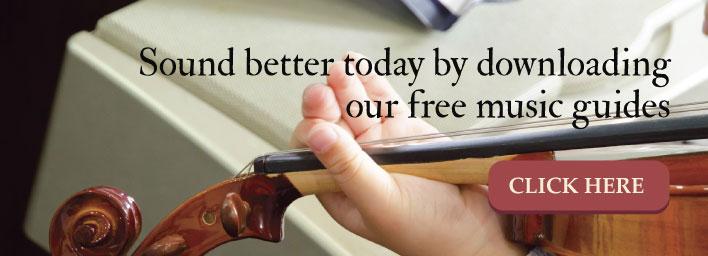What Are The Benefits Of Playing The Bass? You Might Be Surprised!

As more studies are conducted, making known the benefits of a music education, more and more students are choosing to learn stringed instruments like the violin, cello, and double bass. Learning to play a musical instrument improves cognitive processes that are closely related to math and reading comprehension, plus it develops good posture and upper body strength. And if you’ve recently decided that the bass is for you, you probably expect to discover that your posture has improved, along with your grades in math and literature.
But, did you know that playing the bass offers even greater benefits? Learning to play the bass develops job skills that you’ll need to contend successfully in today’s competitive workplace. It’s true. Playing an orchestral instrument like the double bass can help smooth your career path, no matter what industry you’re interested in because it fosters the skills that are needed in today’s workforce.
Professional Options
Naturally, if you are pursuing a career in music education or hope to play professionally in an orchestra someday then learning to play the bass while you’re still in school is a key part of your strategy. Starting early gives you additional years of practice to develop strong techniques. Plus, by developing your skill as soon as possible, you’ll be able to display the competence level and performance record that admittance boards for your school of choice will be looking for in qualified applicants.
Universal Job Market Advantages
Learning to play the bass doesn’t just help those students who’d like to eventually work in the music industry. Learning to play any type of musical instrument has the potential to influence your future success by contributing to the development of marketable job skills that are universally sought and chosen by effective businesses. Key areas such as cooperation, organization, execution, reliability are all an essential parts of learning to play the bass.
- Cooperation: Teamwork is an important business skill. By learning to play the bass, you repeatedly practice performing in unison. If the entire group doesn’t function as a unit, everything suffers, and each person has an important, individual part to play. In an orchestra or n ensemble, teamwork is honed to perfection.
- Organization: For the music to sound pleasing and harmonious, a group of musicians must each know their respective parts. That means players must develop time organizational skills and set priorities that require individual practice. Businesses need administrators who are able to organize time properly, and who possess a sense of responsibility to their obligations. Being in a string ensemble is proof of those marketable skills.
- Execution: As a bass player, you have to be able to set the tempo for the entire piece. Your future employers will look for leadership potential, and the job market is fierce. Playing the bass offers an advantage by allowing you to demonstrate your ability to execute a piece of music with precision, elegance, and endurance.
- Reliability: It’s doubtful that anyone would argue that performing on stage under spotlights with a live audience is a walk in the park, but being able to perform under pressure shows pressure management skills that are an essential part of fulfilling an executive level position. Learning to play the bass now builds the skills that your future employers are eager to obtain.
Mentioning these skills in job interviews and on applications can give you an advantage in the future job market. When a potential employer asked you if you have experience in demonstrating teamwork or performing under pressure, you can point to your years playing the bass.
Learning a musical instrument like the double bass offers students a variety of scholastic advantages, but many students are surprised to discover that it also provides the foundational experience and performance expertise that employers are looking for in today’s job market. Especially if you’ve been or are currently a member of a performance group. Consider developing an ensemble of your own to perform at weddings and other occasions.


